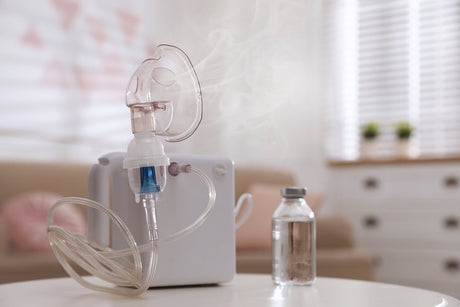Navigating the world of auditory care can be as complex as the human ear itself. For those with mild hearing loss, the choice between over-the-counter (OTC) hearing aids and prescription solutions isn't just about convenience—it's a decision that directly impacts their daily life. This guide provides insights on what to expect from these two options, helping you make an informed decision about one of the most personal medical devices you might own.
Understanding Your Hearing Loss
Before you wade into the debate of OTC versus prescription, it’s crucial to understand the nature of your hearing impairment. 'Mild' hearing loss is often the initial sign of an auditory condition, and it's unique to each individual. Variables like frequency and sound level play a role, and only a professional evaluation can provide the detailed analysis you need. Start by booking an appointment to get your baseline audiogram. Once you've got the numbers, you can truly begin assessing which solution is right for you.
Consultation with a Specialist
Seeing a specialist isn't just a one-time occurrence. Hearing, unlike eyesight, cannot be fully corrected with lenses or corrective surgeries. Ongoing visits allow your specialist to track changes in your hearing over time and discuss if your current solution is still meeting your needs. For some, hearing loss might remain mild for many years, facilitated by regular consultations.
OTC and Accessibility
The push for OTC hearing aids is part of a broader movement to make healthcare more consumer-centric. Advocates argue that OTC devices bring down the cost, eliminate the time-consuming specialist visit, and put the power of hearing healthcare back in the hands of the consumer. While this paradigm shift is exciting and brings to mind the convenience of picking up everyday items at the local grocery store without a prescription, the implications of this shift are profound.
Price and Accessibility
The cost of OTC hearing aids is undoubtedly lower than their prescription counterparts, sometimes by thousands of dollars. Additionally, they may be available in consumer-focused electronics stores or online, further lowering the barrier to entry. However, it's essential to remember that OTC hearing aids are not a stand-alone solution. Some come with a smartphone app for self-programming, drastically improving access even for the technologically averse.
The Role of FDA Regulations
In 2017, the FDA passed a ruling to create a regulatory framework for OTC hearing devices. This move was widely seen as a win for accessibility, but the specifics were met with both praise and skepticism. The fine line between an amplification device and a true hearing aid is a pivotal point in the OTC discussion. The regulations aim to make OTC devices safe and satisfactory—quality standards that, if met, could redefine the market.
What the FDA Approval Means
For consumers, FDA approval brings assurance that OTC devices meet certain standards. This safeguards against poorly designed and potentially harmful products. It also hints at future technological innovations in the hearing world, with FDA involvement potentially smoothing the path for cutting-edge technology. Continuous monitoring will provide valuable data on the efficacy of current OTC solutions, informing the next generation of hearing aids.
Learn more about OTC hearing aids
Digging into the Technology
OTC technology is getting smarter by the day, mirroring the leaps that more traditional hearing aids made in the past decade. Connectivity to smartphones, high-fidelity sound processing, and even AI-driven adjustments are becoming more common. The question for the consumer isn't if OTC can keep up with prescription devices but how well they can keep up with each individual's needs.
Features to Look Out For
Hearing aids aren't one-size-fits-all, and OTC devices are no exception. When comparing features, focus on what's most important for your lifestyle. Are you in crowded, noisy places often? Directional microphones might be crucial. Do you enjoy streaming music or phone calls? Bluetooth connectivity is a must. Consider your needs beyond amplification—clarity, comfort, and convenience all play significant roles.
The Human Element in Fitting and Adjustment
Prescription hearing aids come with the expertise of a professional fitting. This is more than just a comfort issue; it's a matter of precision. Human ears are as unique as fingerprints, and an off-the-shelf solution might not be ideal for your specific auditory physiology. The gradual adjustment process can only be overseen by a professional with years of training.
Personalized Care and Customization
The professional fitting ensures that every audible band is addressed, focusing on making speech clearer rather than just louder. They tinker with settings beyond what a standard OTC device can offer, fine-tuning to your feedback. Additionally, the prescription hearing aid market carries innovative solutions like rechargeable devices, remote adjustments, and water-resistant options that can make a significant difference in your daily life.
We Recommend
In the marketplace, some OTC devices are standing out as reliable, affordable options that deserve your consideration:
-
Lexie B2 Plus OTC Hearing Aids – With impressive customizability, the Lexie B2 Plus is a standout for those who require a more tailored approach to their audio settings.
-
Go Ultra Hearing Behind-Ear Aids – High on power and comfort, these behind-the-ear options are perfect for those looking for discreet, smart technology at an affordable price.
-
Go Prime OTC Hearing Aids – Simple yet effective, these budget-friendly aids are a great entry point for OTC users.
OTC vs Prescription hearing aids
Your hearing health is as unique as you are, and any decision regarding your hearing aids should reflect that individuality. OTC devices have opened up a world of possibilities for those with mild to moderate hearing loss, but they are not without their limitations. Prescription solutions come with a price tag, but also with the assurance of professional care and state-of-the-art features.
Take the time to research and consider your options. Read user reviews, compare features, and most importantly, consult with a professional. Whether you end up with an OTC or prescription hearing aid, make sure it's a choice rooted in understanding, personal comfort, and the tailored care your ears deserve.
FAQs
Are OTC hearing aids as effective as prescription ones?
The effectiveness of OTC hearing aids depends on the severity and nature of the hearing loss. For mild cases, OTC aids might provide sufficient amplification. However, for more complex conditions, prescription options are likely more beneficial.
Can I damage my hearing with an OTC device if it's not set up correctly?
OTC devices that adhere to proper FDA standards should not cause damage, provided they are used following the manufacturer's guidelines. However, there is a risk of inadequate amplification or misadjustment leading to discomfort or other issues.
How do I decide between OTC and prescription hearing aids?
Consider the severity of your hearing loss, your budget, and your lifestyle. If you value professional-level fine-tuning and more advanced features, a prescription hearing aid might be the better choice. If convenience and cost are your priorities and your hearing loss is mild, an OTC device could meet your needs.
As a leading supplier of durable and home medical equipment (DME and HME), ApriaDirect sources and distributes a wide range of treatment solutions, including assistive hearing equipment and solutions.
We're here to support you as you work toward your improved health and well-being. We strive to meet your ever-evolving healthcare requirements with individualized attention and premium quality treatment solutions.
Looking to add hearing aids? Browse our premium solutions and let us help you get the most out of every day.
Looking for advice? Our helpful agents are on call at (800) 780-1508 between 8:00 am - 10:00 pm EST daily. Get in touch today.





